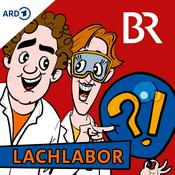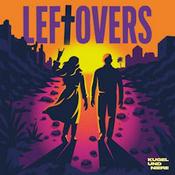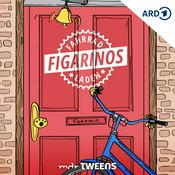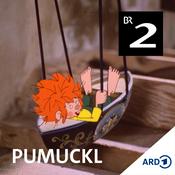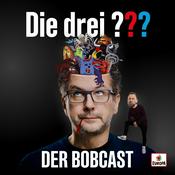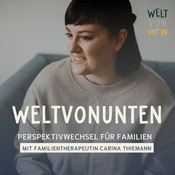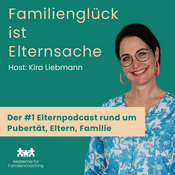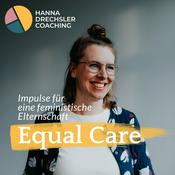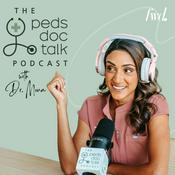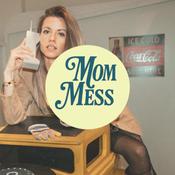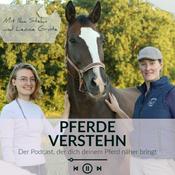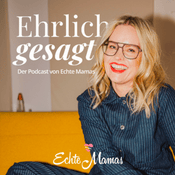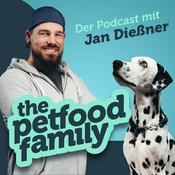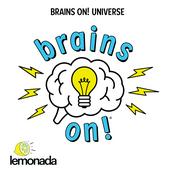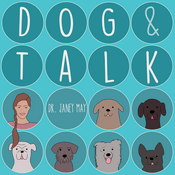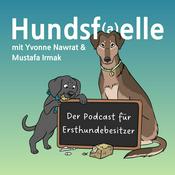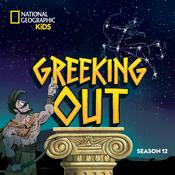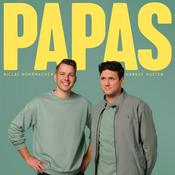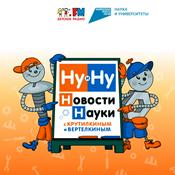86 Episoden

Goodbye, for now
06.3.2025 | 4 Min.
An announcement from Emily about the podcast.

An Expert Roundtable on Trying to Conceive
27.2.2025 | 57 Min.
For many people, when we start thinking about a family, we assume it'll just happen nine months from the moment we start trying. But that isn't the way it happens for all of us. And fertility can often be a journey that's more winding and more complicated and more confusing than we expected it to be. That's why ParentData has launched a new content vertical, Trying to Conceive (TTC), covering everything from ovulation windows to donor eggs to infertility treatments, along with a newsletter all about infertility treatment in particular, which aims to answer all of your questions with data. It's our mission to provide real evidence-based information so you can make the best decisions for your family.Today on ParentData, we're airing the audio from an event Emily did with three of the people who have contributed most to our new initiative: Dr. Breonna Slocum, a reproductive endocrinologist and fertility specialist, Marea Goodman, a licensed midwife and author, and Dr. Pooja Lakshmin, a perinatal psychiatrist. This roundtable of experts discuss about where to start with fertility, answer audience questions in real time, and consider what they all wish that they knew before starting the journey of trying to conceive.Explore to Trying to Conceive on ParentData.org, where you can also access new articles every week on data-driven pregnancy and parenting.This episode is generously supported by: Hatch LMNT StrollerCoaster Podcast

How to Baby-Proof Your Relationship: Navigating a new marital landscape
20.2.2025 | 53 Min.
When you look at the data, it is true that after people have kids, marital satisfaction declines. Having a baby drastically changes everything in your partnership that was familiar, that was predictable, that you got used to. And some of those are the reasons you got into the relationship in the first place. That’s the reality of having kids. And as much as we love them, it can be an incredible shock to the system. There were date nights, there were lazy Sunday mornings in bed, and now there are feedings and diaper changes, feeling touched-out, packing school lunches the night before or at 5:45 in the morning. To paraphrase Ethan Hawke’s character from Before Sunset: We used to be in love. Now we’re roommates who run a day care together.Today on ParentData, we're joined by Dr. Yael Schonbrun, a clinical psychologist, an author, and a researcher who focuses on the science and data behind healthier, happier relationships. And she’s here to help you baby-proof your relationship. Take heart: for many — probably most — couples, this issue is not hopeless.Subscribe to ParentData.org for free access to new articles every week on data-driven pregnancy and parenting.This episode is generously supported by: Hatch LMNT StrollerCoaster Podcast

All About Vaccines: Why they’re important, and how to make them more tolerable for your child
13.2.2025 | 46 Min.
Shots are never a fun experience. Even if you are enthusiastic about vaccines, holding your kids as they get them is not usually a high point of parenting. And right now, the conversation about vaccines is increasingly fraught - and not just because our kids are sometimes afraid of needles.Because we're living in a moment where vaccines, long one of the most trusted and studied preventative medical treatments in existence, are suddenly being viewed with skepticism. Debunked theories about the relationship between vaccines and autism, for example, are taking center stage on Instagram and Facebook, but also in congressional hearings. Part of the problem is a lack of understanding. People don't know quite how vaccines work or why there are more now than in the past or how we can know that they are safe. Today on ParentData, we welcome Dr. Adam Davis. Adam is a pediatrician in the Bay Area, and he has a lot to say about vaccines from the perspective of someone who gives them. In the conversation, we talk about our theories on why the COVID vaccine sped up a slow-growing movement around vaccine skepticism, about the role that vaccines play in public health, about what it’s like for doctors to deal with vaccine skeptics in their own practice and what people can and can't be talked into or out of, and, because it’s a parenting podcast, some hacks for getting your kids through vaccines without too much drama.Subscribe to ParentData.org for free access to new articles every week on data-driven pregnancy and parenting.This episode is generously supported by: Hatch LMNT Little Sesame StrollerCoaster Podcast

Understanding Risk, Living With Uncertainty
06.2.2025 | 12 Min.
In the last month, we've aired podcast conversations with Dr. Nathan Fox and Dr. Bapu Jena, and though the content is different, there’s an underlying thread that connects them both: what it means to deal with risk, and uncertainty. And not lose your mind.Economists deal with this constantly, and so do parents, but not in the same way. Economists learn not to panic in ways that parents, understandably, have a really hard time with. We’re trained to read the studies, and spot their holes, or their aims and impacts. Yes, we live in a world with trace amounts of lead in Cheerios, and sometimes it can feel scary to leave the house. But things that are low risk are low risk, no matter how scary they feel.Today on ParentData, Emily reads her recent article on risk and uncertainty aloud, and encourages us all to think about risk like economists, so that we can internalize it as sane parents.Subscribe to ParentData.org for free access to new articles every week on data-driven pregnancy and parenting.This episode is generously supported by: Hatch LMNT Little Sesame StrollerCoaster Podcast
Weitere Kinder und Familie Podcasts
Trending Kinder und Familie Podcasts
Über ParentData with Emily Oster
Höre ParentData with Emily Oster, Lachlabor - Lustiges Wissen für Kinder zum Miträtseln und viele andere Podcasts aus aller Welt mit der radio.de-App
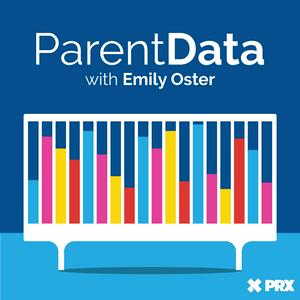
Hol dir die kostenlose radio.de App
- Sender und Podcasts favorisieren
- Streamen via Wifi oder Bluetooth
- Unterstützt Carplay & Android Auto
- viele weitere App Funktionen
Hol dir die kostenlose radio.de App
- Sender und Podcasts favorisieren
- Streamen via Wifi oder Bluetooth
- Unterstützt Carplay & Android Auto
- viele weitere App Funktionen


ParentData with Emily Oster
App laden,
loshören.
